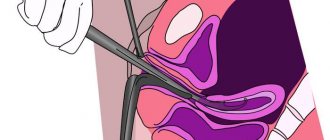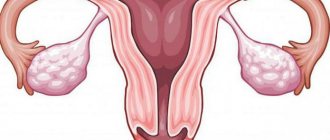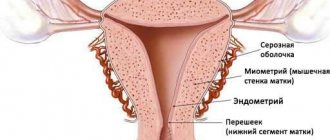08/19/2020 Zoryan Freidovich Psychology
Some of the sensations that women experience are difficult to describe in words. These include pulsation in the vagina. Doctors explain that this happens when muscles contract. This phenomenon is normal in most cases. If the patient tries to describe the contractions of the uterus, she usually explains her sensations as rhythmic twitching. Could such symptoms be associated with some pathology?
Pulsation in early pregnancy
Pulsation in the vagina during pregnancy is usually a physiological norm. Such sensations are typical in the early stages. A slight pulsation gives a woman a reason to guess about her position even before her menstruation is delayed. The fact is that after implantation of the embryo into the uterine cavity, which occurs three to seven days after fertilization, all parts of the reproductive system begin to be actively supplied with blood. The result is a pulsating sensation.
Recommendations
It is simply impossible to predict the time of pulsation and prevent it during gestation. There are recommendations developed by experts to improve the general condition of the expectant mother and her baby, such as:
- daily walks in the fresh air for half an hour;
- proper and balanced nutrition, enriched with the necessary amount of useful components for the full functioning of all organs and systems;
- regular wet cleaning and ventilation of the apartment;
- performing basic exercises and breathing exercises.
Very often, pulsation that occurs in the uterine cavity can be accompanied by the following symptoms:
- pain in the lower abdomen, back and legs;
- the appearance of discharges uncharacteristic for the normal state and containing blood impurities;
- a sharp increase in body temperature.
All of the above symptoms are a signal to contact a specialist as quickly as possible. In this case, a gynecologist. During the period of gestation, self-medication is strictly prohibited, as it can lead to very sad consequences.
For this reason, the occurrence of any uncharacteristic symptoms during this period should be reported to your primary care physician. Using various diagnostic measures, a gynecologist will be able to determine the cause of pulsation and all accompanying symptoms that bring discomfort to a woman, and then prescribe treatment to eliminate this problem.
The appearance of pulsation together with pain can signal the following possible conditions, such as:
- ectopic pregnancy;
- excessive accumulation of gases in the intestines caused by food;
- abdominal aortic aneurysm, developing as a result of vascular atherosclerosis;
- hypertonicity of the uterine muscles, which can lead to spontaneous abortion.
Based on the above, it should be concluded that if pulsations occur in the uterus, a woman in position should visit a gynecologist as soon as possible.
Only a qualified and experienced specialist will be able to correctly determine the cause as a result of which these changes occur. Sometimes, to accurately determine it, a woman needs to undergo a set of diagnostic measures.
You should not worry ahead of time, because diagnostics are only needed to confirm that everything is fine with the child. In addition, you should also remember that pulsation is not always a pathological condition and if it occurs, you should not be afraid or panic ahead of time.
Every woman sometimes feels intense pulsation in the area of the uterus. At such moments, it seems that the heart muscle has moved to the lower abdomen. When the uterus pulsates during pregnancy, the phenomenon can be explained by the movement of the fetus. But often palpitations are felt even in adolescents and adult women who are not yet planning to have a baby. The blows hit all parts of the abdomen, legs and even the tailbone. So is such a pulsation dangerous, what are its causes, is any special therapy needed against it, and what kind of phenomenon is it in general? Below are the answers to all these questions.
Feelings of hiccups in a baby
A pulsating sensation in the vagina may occur around the seventh month of pregnancy. This happens because the baby develops hiccups. There is no need to worry about this. The child simply swallows amniotic fluid while trying to independently control the breathing process. Pulsation in the vagina can be felt for several minutes to several hours. The expectant mother should not worry if the ultrasound did not show the presence of pathologies of the respiratory and digestive systems in the fetus.
Why does the uterus pulsate all the time? What to do if you feel pulsation
vipcosmetolog.ru → We sew ourselves
At any stage of pregnancy, a woman can feel a pulsation in her abdomen. What causes such an incomprehensible phenomenon?
A woman begins to feel the first movements at 16-20 weeks. It all depends on individual sensitivity and the current pregnancy. A sharp increase or decrease in the number of fetal movements, and even more so their disappearance, indicates trouble.
Typically, the number of fetal movements at 32 weeks reaches 90-100 movements in 12 hours, then their frequency gradually decreases and reaches 40-50 movements by the end of pregnancy. 10-20 movements in 12 hours are considered critical. Counting is carried out for 60 minutes at the same hours.
Therefore, it is important to monitor changes in the abdomen, and if suspicious symptoms are detected, report them to the antenatal clinic.
But it turns out that pulsation in the lower abdomen is sometimes caused by completely different reasons. It is not always possible to determine what is causing the pulsation in the abdomen. Most often, according to doctors, it occurs as a result of pinching of the vena cava, as well as hiccups of the intrauterine fetus.
Pinching of the vena cava
Abdominal twitching caused by pinching of the vena cava can occur after the 25th week of pregnancy, when the baby gains weight and begins to put pressure on the lower uterus. This leads to pinching of the vena cava, which transports venous blood, and causes a sensation of its pulsation. In order to prevent vein pulsation, starting from 20-25 weeks of pregnancy, it is preferable to sleep on your side.
In the supine position, the child presses the vena cava with its weight and this can provoke inferior vena cava syndrome.
This syndrome develops in every tenth woman during pregnancy and causes shortness of breath, palpitations, nausea, a drop in blood pressure and darkening of the eyes to the point of fainting, and can also lead to impaired renal function in the woman and hypoxia in the fetus.
Hypoxia in the fetus is currently the leading cause of perinatal morbidity. Neuropsychiatric diseases in 80% of newborns are associated with intrauterine hypoxia.
Changes in the brain may decrease after birth and then increase again.
Inferior vena cava syndrome is a preplacental cause, and its treatment consists of eliminating actions that lead to compression and disruption of blood flow.
Baby has hiccups
After 28 weeks of pregnancy, the baby begins to make breathing movements and swallows a small amount of amniotic fluid.
This causes the baby to have prolonged bouts of hiccups, which in the middle of pregnancy do not cause concern to the mother, but in the last weeks of pregnancy can cause discomfort in the uterus and are traditionally a cause for concern about the health of the child.
Hiccups can sometimes last for several hours and cause twitching of the abdominal muscles. Although this does not harm the baby, you can try changing your body position.
Attention! In some cases, persistent hiccups may indicate fetal hypoxia and require therapeutic measures.
The doctor may prescribe an examination using ultrasound, echocardiography, or Doppler echocardiography. These are harmless and highly informative methods for determining the condition of the fetus.
The woman will also be assessed for the condition of the fetal vessels. Visualization of the great vessels of the fetus is possible from 16-18 weeks of pregnancy, but accurate identification and measurement are possible from 20 weeks.
In rare cases, a woman may feel a pulsation in early pregnancy. They say that the reason for this is improved blood circulation, designed to provide the nascent embryo with everything it needs.
According to the medical version, this condition is associated with implantation of the embryo, which lasts from 6-9 days to 7 weeks of intrauterine development. Contraction of the fetal heart tube can be observed in the 4th week of pregnancy.
And at week 8, placentation begins, which is felt as a pulsation in the uterus.
Another reason for pulsation in the uterus is a woman wearing very tight clothing, which compresses the blood vessels and prevents normal blood circulation.
Therefore, women should not use old, tight clothes with narrow elastic bands during this period. And it’s better to rest half-sitting in a chair, placing a pillow under the lumbar area.
In this position, the pregnant uterus does not compress the vena cava and neighboring organs.
In general, a woman has many reasons for concern during pregnancy, and pulsation is the most harmless of them. Doctors at the antenatal clinic advise at this time to get plenty of rest, eat rationally and avoid stress and empty worries. Let the wait for the baby be calm and joyful for the woman.
This video talks about uterine tone:
Conception
If you believe the general opinion, then the occurrence of such a condition as pulsation in the uterine cavity encourages the girl to take a pregnancy test so that she finds out about her situation as early as possible. That is, the reproductive organ in this way reports or sends a signal in the early stages that conception has occurred.
Pulsation in the uterus in the early stages indicates conception. Source: mirpolzy.ru
After contact between the sperm and the egg occurs, the latter tries to attach as quickly and firmly as possible to the uterine wall on the endometrial layer. If this process is successful and the fertilized egg is securely fixed, then a gradual process of its development will begin.
As a result of this, transformations begin to occur in the reproductive system, directly related to changes in the structure of the circulatory system, since the vessels begin to actively transport biological fluid so that the fetus receives the necessary nutrients and oxygen. When the uterus begins to increase in size, the woman will periodically feel a pulsation.
Who said that curing infertility is difficult?
- Have you been wanting to conceive a child for a long time?
- Many methods have been tried, but nothing helps...
- Diagnosed with thin endometrium...
- In addition, for some reason the recommended medications are not effective in your case...
- And now you are ready to take advantage of any opportunity that will give you the long-awaited baby!
Every woman sometimes feels intense pulsation in the area of the uterus. At such moments, it seems that the heart muscle has moved to the lower abdomen. When the uterus pulsates during pregnancy, the phenomenon can be explained by the movement of the fetus. But often palpitations are felt even in adolescents and adult women who are not yet planning to have a baby. The blows hit all parts of the abdomen, legs and even the tailbone. So is such a pulsation dangerous, what are its causes, is any special therapy needed against it, and what kind of phenomenon is it in general? Below are the answers to all these questions.
The uterus “beats the rhythm” - reasons
Distinct heartbeats in the area of the uterus and abdominal cavity occur for many reasons. Sometimes they are caused by natural phenomena (menstruation), sometimes by serious diseases. The reproductive organ often “dances” during pregnancy.
It is impossible to figure out on your own why the pulsations appeared without a doctor and special research. First of all, the specialist will establish:
- location of vibrations. Most often this is the umbilical area, left or right side;
- the strength of uterine spasms, their frequency and intensity.
Most often, pulsations appear:
- in the 3rd trimester of pregnancy. Pulsation in the uterine area during pregnancy in the last few months before the birth of the child can be caused by the fact that the vena cava begins to be compressed. This unpleasant phenomenon is especially annoying if a woman is pregnant with several children. Clamping of the vena cava is a serious pathology. In a pregnant woman, it causes heart problems and can lead to miscarriages. This cannot be done without medical intervention. To reduce pressure on the vein, a pregnant woman should try to lie on her back as little as possible.
- Hiccups of a pregnant baby who has swallowed amniotic fluid. This happens especially often in the last 3 months of pregnancy.
- Vibration in the uterine area in pregnant women, which is accompanied by severe pain and excessive bleeding, may be a sign of uterine hypertonicity. This is a dangerous complication that often ends in miscarriage.
- Chronic problems with the digestive system. The uterus twitches and vibrates often due to such seemingly banal things as intestinal dysbiosis and severe bloating. Gases simply put pressure on the uterine walls and abdominal cavity, which causes an unpleasant phenomenon.
- Menstrual cycle. “Menstrual” pulsations without pregnancy are not a cause for concern. They are nothing more than an ordinary symptom of menstruation.
- Problems with the ventricles of the heart. In this case, vibrations are observed in the epigastric (abdominal) region.
- Such a dangerous disease as an abdominal aortic aneurysm is another possible cause of this unpleasant phenomenon.
Important! Pulsations in the first trimester in early pregnancy are quite natural. There is nothing dangerous about them. If they do not disappear in the second trimester, it would not hurt to consult a doctor.
Vibrations can also be caused by fairly ordinary reasons:
- drinking alcohol and overeating;
- severe stress.
The reproductive organ can also pulsate if a woman is forced to sit or stand for a long time in an uncomfortable position - for example, riding in a crowded subway car.
The effect of abortion on pain in the lower abdomen
Another reason why the lower abdomen pulsates is the consequences of an abortion. After the procedure, discomfort in this area may go away, or it may get worse due to the remnants of the fertilized egg, infections and complications.
Medical abortion is a process that must be supervised by a doctor. A week after taking the pills, the woman needs to return to the gynecologist to undergo an ultrasound again and identify abnormalities at an early stage.
About 5% of girls who undergo a similar procedure become victims of incomplete medical abortion. Most often this happens due to the fault of women themselves. They do not pay attention to the doctor’s recommendations and do not visit the gynecologist for the third time.
Is this a dangerous phenomenon?
Uterine vibrations can be both dangerous and completely harmless:
- Nerves are the cause of most illnesses. When your mood is “feverish” and anxiety haunts you, a “nervous” pulsation often awakens in the navel area, which is akin to a harmless tic. When it appears, it won’t hurt to consult a psychotherapist.
- There is no need to worry too much if the uterine area “vibrates” during the menstrual period. This is completely normal and natural. This phenomenon is explained by the most common contraction of the reproductive organ. The fact is that during menstruation the endometrium is rejected. To get rid of it, the uterus contracts. Because of this, not only pulsation is felt, but also pain. If there are no pathologies, the pain is quite tolerable and does not particularly affect the quality of life.
- When the unpleasant sensations are strong, then uterine hypertonicity may have begun. This condition is dangerous, so you should definitely consult a doctor.
- Many expectant mothers mistake normal fetal movements for dangerous pulsations. Such “belly dancing” should not cause concern.
- Pulsation is truly dangerous if it is caused by such a serious illness as an abdominal aortic aneurysm. In this case, vibration in the reproductive organ is accompanied by increasing pain, which is especially noticeable in the middle of the abdomen. If you have such symptoms, you should immediately consult a doctor.
If the uterus pulsates during pregnancy, but there are no strong painful sensations, there is no need to worry.
If there is a pulsation in the abdomen in the 2nd or 3rd trimester of pregnancy, the reasons
If at the beginning of the second trimester of pregnancy periodic pulsation in the abdomen still accompanies the patient, then this does not at all mean the development of pathology, however, only a specialist can say for sure after an examination. The thing is that the symptoms of the birth of a new life are replaced by others characteristic of the further development of pregnancy.
1 If the rhythmic tremors in the abdomen did not go away after the end of the first trimester, and the treatment was ineffective, then most likely it was chosen incorrectly. Such pathologies require constant monitoring to prevent possible complications.
Source: https://MedLazaret.ru/ginekologiya/dergaet-matku.html
Pulsation in the last trimester
In the last three months of pregnancy, pulsation may appear from time to time due to compression of the inferior vena cava, which provides normal blood supply to the organs of the female reproductive system. Compression occurs due to a significant increase in the size of the uterus and fetal pressure. Usually felt when lying on your back. In this case, it is enough to change the position of the body. With a critical lack of blood supply, the woman feels dizziness, weakness and nausea. If you have such symptoms, you should immediately consult a doctor.
In most cases, pulsation in the vagina during pregnancy is a physiological norm. But it’s still worth telling your gynecologist about unusual sensations at your next scheduled examination. If the pulsation is accompanied by atypical discharge from the genital tract, weakness and poor health, pain, then you should seek medical help as soon as possible.
When is it time to see a doctor?
Uterine pulsations can result in serious complications, so you need to be alert and seek medical help in time. Here are situations where pulsations can cause serious problems:
- Vibration of the abdomen appears along with a strong intermittent nagging pain that lasts more than 20 minutes and radiates to the lumbar region. This is a sign that contractions have begun. If the birth is still far away, you need to urgently go to the doctor, otherwise a miscarriage is possible.
- You should also seek medical help if pulsations appear along with pain and spasms and last more than 15-20 minutes. If this is not done, fetal hypoxia may occur.
- You cannot do without medical help even when pain appears when lying on your side.
- pulsation during the menstrual period is normal. However, if it is accompanied by severe bleeding and pain, it would not hurt to consult a doctor.
There are many reasons why the uterus pulsates. But most often the stomach “beats the rhythm” in women expecting a baby. This symptom is one of the early signs of the birth of a new life. It is not dangerous either for the unborn baby or for his mother, and therefore should not cause any special worries or worries.
good evening everyone, tell me what this could be, it’s been pulsating in the area of the uterus for about 5 days already! And it’s strong and 3 times a day, especially when I’m lying down! It started on the 10th day of the cycle! Yesterday I took an ovulation test, it showed a second, not bright line! PA was on October 3, 7, 9, 11, 12, 14... this pulsation is very scary! This is the first cycle when this happens!
Woman.ru experts
Find out the opinion of an expert on your topic
Rumyantseva Evgenia Valerievna
Psychologist. Specialist from the site b17.ru
Spiridonova Nadezhda Viktorovna
Psychologist. Specialist from the site b17.ru
Igor Malov
Psychologist, Sensitive psychologist. Specialist from the site b17.ru
Sheludyakov Sergey
Psychologist, Clinical psychologist. Specialist from the site b17.ru
Volkova Irina Vladimirovna
Psychotherapist, Sexologist. Specialist from the site b17.ru
Natalya Maratovna Rozhnova
Psychologist. Specialist from the site b17.ru
Sokol Larisa Ivanovna
Psychologist, Gestalt therapist. Specialist from the site b17.ru
Sultanova Anna Olegovna
Psychologist, Clinical psychologist. Specialist from the site b17.ru
Fortunatova Oksana Vasilievna
Psychologist, Psychosomatologist. Specialist from the site b17.ru
Injuries to the walls of the vagina and cervix
Often the vagina is injured during rough sexual intercourse. The risk of injury increases due to insufficient natural lubrication. In this case, it is additionally necessary to use lubricants, but if you use condoms as a means of contraception, then you need to choose water-based products.
The problem of vaginal dryness appears due to the lack of foreplay or hormonal imbalance in a woman’s body. The secretion of lubrication is impaired due to insufficiency of the hormone estrogen. After sexual intercourse, a woman feels a burning sensation and pain in the vagina, and bleeding of varying intensity may occur. Thus, due to injury to the cervix, throbbing pain appears during intercourse.
Vaginal pulsation during orgasm is normal and should not cause concern. Close-up scenes like this are shown in many 18+ films. This occurs due to muscle contraction, in addition, breathing and heart rate increase. And if the pleasure is very strong, then the lower abdomen may also pulsate.
Pain in the uterus can be caused by various causes and pathologies.
Adnexitis is an inflammatory disease of the appendages, the development of which is provoked by infectious pathogens. Young women aged 20-30 years are at risk for this disease.
Cervicitis is a very dangerous disease of the pelvic organs of the fairer sex, which is characterized by an inflammatory process of an infectious nature. Inflammation develops in the mucous membrane of the cervix, and such an unpleasant symptom appears as a tugging of the uterus.
The uterine organ occupies a leading place in the female reproductive system. Therefore, when the uterus hurts, it is necessary to take the manifestation of such symptoms seriously, especially for women who have not yet known maternal happiness. It is known that various diseases of this organ can lead to a decrease in the function of childbirth, or even to infertility.
Pain in the uterus can be of various types: acute or chronic, constant and periodic. There are cases when the uterine organ may hurt during or after sexual relations, as well as during periods of menstrual bleeding.
To find out the causes of pain, you should contact your doctor. As a rule, before making a diagnosis, the doctor conducts an examination, which includes a visual examination of the patient, ultrasound diagnostics, and taking smears for cytological analysis.
If necessary, a colposcopic examination followed by a biopsy may also be prescribed.
Pain in the uterus can have various causes, which only a gynecologist can accurately determine. Often pain can be caused by the following sources:
- Inflammatory processes of the genital internal organs;
- Structural changes in the uterine organ.
It is important to note that if the uterus hurts badly, it does not always mean that pathological processes occur in it. Diseases of the gastric and intestinal tract, as well as the excretory system, can cause pain in the abdominal area, and it is quite difficult for the woman herself to understand what exactly hurts.
Aching pain in the uterus of a constant or periodic nature can be caused by a number of inflammatory diseases:
- Adnexitis;
- Oophoritis;
- Endometritis;
- Salpingitis.
The above diseases can develop in a chronic or acute form. The cause of their occurrence is considered to be the spread of pathogenic bacteria in the body, as well as infection with infections transmitted through sexual intercourse.
The latter include chlamydia, mycoplasma, trichomonas and others.
If a woman has suffered severe emotional stress or has reduced immunity, as well as endocrine disorders, then the causative agent of the infection is activated, and, as a result, the uterus may hurt.
The uterus is the most important organ of a woman’s reproductive system. It is necessary for bearing the fetus and is located in the middle pelvic region.
When an inflammatory process occurs in the body, it is accompanied by pain. However, pain does not always indicate a disorder; sometimes this symptomatology is a natural process.
In order to understand why the uterus hurts, you need to visit your doctor. There are many factors that influence the manifestation of discomfort in the reproductive organ.
During the menstrual cycle, most women experience pain in the uterus, most often this is due to structural features of the body. Every second girl complains to the gynecologist about discomfort during menstruation.
Painful sensations begin to appear a couple of days before menstruation, and the symptoms completely disappear on the second day after the start of bleeding.
Women are interested in why the uterus hurts during menstruation. The thing is that the organ begins to contract more often, which causes spasms in the muscles, which lead to discomfort.
Many women note that after the birth of a child, pain in the uterine area goes away. Scientists have not yet established the reason why pain disappears.
Pain in the genital area occurs due to a viral infection. In most cases, inflammatory processes occur in women who are promiscuous.
At the same time, they use special contraception measures. For this reason, infections occur that are quite difficult to treat.
The main thing to understand here is that if a woman immediately turns to her doctor and begins immediate treatment, then the likelihood of developing pathological processes is sharply reduced.
Infectious processes can appear not only through sexual transmission, but also for other reasons. It hurts in the uterine area if a girl has E. coli in her body.
This bacterium always resides in the human body and is located in the digestive tract. Many women prefer to wear tight underwear, this becomes the reason why the bacteria changes its location.
From the digestive tract, the stick moves to the vagina, and then becomes firmly fixed in the uterus.
E. coli needs to be treated only comprehensively. Unfortunately, self-medication in this case is undesirable, since the nature of the microorganism can only be determined through laboratory tests.
This situation threatens that adhesions will form on the uterus, and this, after a certain time, will lead to the patient becoming infertile. In addition, patients experience constant poor health.
Neoplasms
To understand the cause of discomfort, you need to know how the uterus hurts and the main symptoms of the disorder. Discomfort in the organ sometimes occurs due to the presence of tumors.
Most often, a girl is diagnosed with fibroids. As a rule, in most cases the neoplasms are small in size, then the doctor may decide that there is no need to treat this pathology.
This is only possible if the tumor does not cause discomfort and there are no visible signs of disease development.
When the symptoms are pronounced, and after examination it has been determined that the cysts belong to the dermoid or endometrioid group, and carcinoma is also detected, the patient must undergo surgery.
Doctors are often consulted when the uterus hurts when pressed. Such symptoms indicate that the neoplasm that has appeared in the organ is endometriosis.
These tumors are benign, but they cause an increase in the size of the uterus, intestinal system, and abdominal cavity. With this disorder, a woman experiences severe pain that is quite difficult to bear.
If these signs are left unattended for a long period, then a disorder of the reproductive system occurs and most often the patient loses the opportunity to become pregnant.
Treatment of this disease is quite complex and takes a long time. The choice of therapy depends on the stage of development of the disease, as well as what type of tumor has formed in the reproductive organ.
Pathologies of the uterus
Sometimes during menstruation, pain occurs not only for natural reasons; pathology can be triggered due to disorders that are congenital or acquired.
Most often, the cause of the malaise is partitions; they have different types. The septum can be saddle-shaped, bicornuate or unicornuate.
In rare cases, the patient is diagnosed with agenesis or hypoplasia of the uterus, and this leads to serious consequences. Agenesis means that the patient does not have a reproductive organ.
A woman’s symptoms with this disease are different, but they are provoked by the fact that due to the absence of an organ, neighboring systems begin to shift.
The discomfort and symptoms of this disease persist for life, and infertility can no longer be cured. However, partitions can be corrected; modern medicine allows this to be done.
In the first trimester, a woman experiences pain due to the fact that the organ begins to increase in size. However, severe pain occurs in pregnant women who had infectious diseases before conceiving a child, and there are also adhesions on the organ.
When an increase in volume occurs, the soft tissues are stretched, and this leads to unpleasant symptoms.
It is worth noting that such an ailment is not a serious pathology and does not require treatment. However, during a consultation with a gynecologist, the patient needs to be told about the signs of the disorder, since it is impossible to determine the type of pathological process without a special study.
Internal systems begin to produce the hormone progesterone, which is needed to relax internal soft tissues. When the level of the hormone in the blood is normal, there is practically no pain.
However, there are times when progesterone levels increase significantly. Then pregnancy is at risk, since the muscle tissue of the uterus is greatly weakened and is not able to hold the fetus inside the organ.
Miscarriage can be prevented if you seek medical help at the beginning of the disease.
As a rule, pain in the uterus is a normal condition during gestation. Discomfort occurs due to the fact that internal systems are preparing for the birth process.
The pain itself manifests itself as a result of the fact that the reproductive organ begins to contract intensively. This often occurs during training contractions, when the body prepares internal systems for the birth process.
However, these symptoms may indicate premature labor. At the same time, discharge appears and water drains. It is also possible that other signs of impending labor may appear.
Women are interested in what to do if the uterus hurts in such a situation. The main thing is not to panic; you need to go to the hospital. If the pain is strong enough, then you need to call an ambulance.
Other causes of pain
Inflammatory processes
Pulsation in the vagina often accompanies inflammatory processes in the genitourinary system. Depending on the pathogen, the clinical picture can vary significantly. Typically, throbbing pain accompanies the appearance of purulent discharge from the genital tract. In the acute period of the disease, a woman may notice a deterioration in her health, nausea and weakness, apathy, fever, and problems with sleep and appetite are often noted.
With cystitis (inflammation of the walls of the bladder), along with pulsation, there is a desire to frequently run to the toilet, as well as pain and burning when urinating with short-term relief. In the vast majority of cases, the cause of cystitis is an infection that has entered the urinary tract. Sometimes the disease can be triggered by an allergic reaction or taking certain medications, wearing tight synthetic underwear, promiscuity, kidney pathologies, hormonal imbalance or a simple decrease in immunity.
What other reasons could there be for pulsation in the uterus during pregnancy?
While carrying a child, most women experience a feeling of pulsation in the uterus. Why this phenomenon occurs, how dangerous it can be and what to do to get rid of discomfort - these are the main questions of interest to pregnant women. There may be several reasons for the appearance of pulsation in the uterine cavity, however, only a specialized specialist can determine what exactly provoked this phenomenon in each specific case based on the examination.
Pulsation as the first signs of pregnancy
Many women note that the appearance of rhythmic tremors in the uterus has become for them one of the signs of successful conception. Shortly after fertilization, the egg descends into the uterine cavity and is implanted into its wall, from this moment the baby is nourished by the mother. The successful implantation of an embryo into the uterine wall is a kind of signal for the female body, calling on all organs and systems to work in enhanced mode. The blood of the expectant mother increases significantly in volume and begins to circulate intensively, providing the future baby with all the necessary nutrients and oxygen. At the same time, the uterus changes its shape and begins to rapidly increase in size, and the blood pulsating in it is clearly felt by the woman.
Hiccups in a baby can cause throbbing in the uterus.
At 28 weeks, the baby inside the mother begins to hiccup so clearly that it is impossible not to notice. There are several reasons for this phenomenon:
- formation of the respiratory and digestive system;
- accidental swallowing of amniotic fluid by the baby as a result of preparation for independent breathing after birth;
- oxygen deficiency.
In this case, a woman’s rhythmic twitching of the abdomen is observed only in its lower part, and the duration of this process is difficult to predict: a child in the mother’s womb can hiccup for even several hours. This phenomenon should not be accompanied by painful sensations, however, too long a process may be evidence of fetal hypoxia, so medical care cannot be avoided. Insufficient oxygen supply through the placenta to the baby can lead to extremely serious consequences, for example, a delay in its mental and physical development.
If there is a pulsation in the uterus, the vena cava is strangulated
While carrying a child, all organs and systems of a woman are subject to increased stress, especially the cardiovascular system, because the blood volume of the expectant mother increases by 30-40%.
At the same time, the actively growing uterus begins to put pressure on nearby blood vessels, which can lead to the so-called inferior vena cava syndrome - compression of the largest venous vessel that transports blood from the lower part of the body to the heart. Depending on the severity of the condition, symptoms may include:
- blood pressure surges;
- dizziness;
- excessive weakness;
- shortness of breath;
- lack of oxygen;
- increased heart rate;
- tinnitus;
- nausea and vomiting.
A woman can experience most of these symptoms while lying on her back, so if any discomfort occurs, you should carefully change your body position and carefully listen to how you feel. If the condition has returned to normal, then additional measures will not be required, but if your health worsens, you should immediately seek medical help.
Pulsation when the baby moves
Some women, especially first-time mothers, mistake the first movements of the baby for pulsating sensations in the uterus. If such sensations occur at 18-20 weeks of pregnancy, then most likely the expectant mother is dealing with the baby’s kicks. Over time, every woman begins to unmistakably distinguish between these phenomena and enjoy every push of her baby. Quite often, pulsating sensations in the uterus are nothing more than the beating of a small heart, which can be felt if the baby is in a certain position very close to the surface of the abdomen.
Menstrual irregularities
Painful pulsation in the vagina may indicate a menstrual irregularity. Women with abnormal vaginal bleeding often experience such problems. The pathology is characterized by the appearance of bloody discharge during the intermenstrual period. This condition can be caused by gynecological or other diseases, hormonal imbalance. If you experience spotting at a time other than when your period should begin, you should consult a doctor. Urgent medical attention is needed for heavy bleeding, pain, or fever.
Why does the uterus beat like a heart?
A huge number of different processes and changes occur every minute in the female body. Some of them are physiological and characteristic of a normal state, but there are still some that appear suddenly, causing unpleasant sensations and discomfort.
One of these processes is pulsation in the uterus. Almost every representative of the fair half of the population faces this change. In addition, it does not depend on age and often causes confusion.
It is impossible to independently determine the exact factor causing the appearance of pulsation in the area where the reproductive organ is located. Therefore, in order to find out exactly the cause of this problem, you should consult a doctor.
After consultation, the specialist will conduct an examination and also prescribe a set of necessary measures, based on the results of which the cause of this condition will be determined.
The appearance of pulsation in the uterine cavity can be facilitated by factors such as:
- pregnancy;
- strangulation of the vena cava;
- movement and hiccups of the baby;
- monthly cycle.
Vibration that occurs directly in the area of the organs located in the small pelvis is often the first sign that indicates that the woman will soon become a mother and a new little life has already arisen inside her.
This phenomenon can occur during all three trimesters of pregnancy. This process is explained by the fact that after fertilization of the egg, a large and active restructuring begins in the body, which occurs individually for each woman.
In addition, with the onset of pregnancy, the size and weight of the uterus begins to increase. This is necessary to create the most favorable environment for the full growth and development of the embryo.
The fetus and the uterus exert pressure on the woman’s abdomen, causing a kind of vibration in the area where the reproductive organ is located. Often, a woman begins to actively feel the occurrence of pulsation in the period from 24 to 26 weeks of gestation. If the expectant mother is very sensitive, then the sensation of pulsation may be noticeable during the first few months of pregnancy.
Drawing taken from babytoday.ru
These two phenomena are interconnected with the active growth of the embryo and uterine cavity. Doctors warn women that in case of significant compression of the vena cava, in addition to pulsation, the following changes may occur:
- headache;
- dizziness;
- nausea turning into vomiting;
- loss of consciousness.
In order to avoid the occurrence of the symptoms described above, a woman during pregnancy is prohibited from lying on her back for a long time, and especially using this position during sleep.
A huge number of mothers are sure that with the help of these unique vibrations the baby signals the expectant mother about his presence. Some women, thanks to the pulsation that arose in the uterus, learned about their pregnancy. In this regard, experts do not rule out that these rhythmic movements felt by the expectant mother may indicate that the baby has made its first movements.
Women who have already become mothers several times say that the pulsation is a signal of the baby's hiccups. For some, this fact will not only cause surprise, but also seem very strange.
Scientists, after various studies, have proven that a child can hiccup while in the womb, thereby provoking the appearance of pulsation in the uterine cavity. It has been scientifically proven that such extremely necessary reflexes as sucking and swallowing develop in the baby when he is still inside. After birth, the baby can independently swallow mother's milk and breathe.
Often, hiccups in the fetus occur immediately at the moment of swallowing, but this does not mean that with hiccups the expectant mother will feel pulsation in the uterus all the time; in some cases it is completely imperceptible. The duration of hiccups can be quite different, as well as the sensations from it.
Most representatives of the fair half of the population, upon the onset of menstruation, are accompanied by the occurrence of unpleasant sensations that cause enormous discomfort.
Before the actual appearance of menstruation, pulsation in the uterus may also occur. This phenomenon is considered normal only when it is of minor intensity and does not provoke pain. Why do pulsations appear before and during menstruation?
With the onset of menstrual bleeding, active rejection of the upper mucous layer lining the inside of the uterine cavity begins. In order to completely get rid of the endometrium, the internal female organ begins to actively contract. During this period these sensations arise. Normally, they should not have a negative impact on the general condition of the woman.
In the case of increased pulsation in the area of the reproductive organ, accompanied by severe pain and other extremely unpleasant sensations, the woman needs to visit her gynecologist as soon as possible, because these changes may be symptoms of increased uterine tone.
It is simply impossible to predict the time of pulsation and prevent it during gestation. There are recommendations developed by experts to improve the general condition of the expectant mother and her baby, such as:
- daily walks in the fresh air for half an hour;
- proper and balanced nutrition, enriched with the necessary amount of useful components for the full functioning of all organs and systems;
- regular wet cleaning and ventilation of the apartment;
- performing basic exercises and breathing exercises.
Very often, pulsation that occurs in the uterine cavity can be accompanied by the following symptoms:
- pain in the lower abdomen, back and legs;
- the appearance of discharges uncharacteristic for the normal state and containing blood impurities;
- a sharp increase in body temperature.
All of the above symptoms are a signal to contact a specialist as quickly as possible. In this case, a gynecologist. During the period of gestation, self-medication is strictly prohibited, as it can lead to very sad consequences.
For this reason, the occurrence of any uncharacteristic symptoms during this period should be reported to your primary care physician. Using various diagnostic measures, a gynecologist will be able to determine the cause of pulsation and all accompanying symptoms that bring discomfort to a woman, and then prescribe treatment to eliminate this problem.
The appearance of pulsation together with pain can signal the following possible conditions, such as:
- ectopic pregnancy;
- excessive accumulation of gases in the intestines caused by food;
- abdominal aortic aneurysm, developing as a result of vascular atherosclerosis;
- hypertonicity of the uterine muscles, which can lead to spontaneous abortion.
Based on the above, it should be concluded that if pulsations occur in the uterus, a woman in position should visit a gynecologist as soon as possible.
Only a qualified and experienced specialist will be able to correctly determine the cause as a result of which these changes occur. Sometimes, to accurately determine it, a woman needs to undergo a set of diagnostic measures.
You should not worry ahead of time, because diagnostics are only needed to confirm that everything is fine with the child. In addition, you should also remember that pulsation is not always a pathological condition and if it occurs, you should not be afraid or panic ahead of time.
Need I remind you that during pregnancy, all the attention of doctors is focused on the belly of the expectant mother. This is especially important in the early stages, when the embryo is just beginning to form. During this period, a pregnant woman should listen more carefully to her body and tell the doctor about any signs that her body gives.
What causes pulsation in the lower abdomen during pregnancy?
One of the common opinions that can be found on almost every forum for mothers is that twitching in the lower abdomen occurs due to fetal hiccups. This option is indeed possible, but not as often as it is referred to. Hiccups in a baby do not appear until the 28th week, that is, the beginning of the third trimester. During this period, the child, being in the womb, begins to swallow amniotic fluid; this action is quite normal. Thus, the future baby learns to swallow and breathe. With large portions of liquid, the baby begins to hiccup, which causes pain in the uterus during pregnancy, straining the muscles in the lower abdomen.
But the most likely cause of such sensations, undoubtedly, is the inferior vena cava. This vein is the largest and most important in the human body. It is located in the retro-abdominal cavity, located to the right of the spine. The vena cava is responsible for transporting venous blood, collecting it from the lower part and extremities, bringing it to the main organ - the heart.
Reasons for concern
Despite the understandable reasons for such unpleasant sensations, there is a threat that can harm the health and even the life of the fetus. It very rarely turns out that twitching in the abdomen means an aortic aneurysm. In such cases, urgent medical attention is needed. However, the pain with this diagnosis differs from simple tingling in the uterus. Painful sensations occur in the middle of the abdomen and the pain usually increases.
Another alarm bell is the same baby hiccups. The fact is that hiccups can appear more than once throughout the day, and its duration is not stable. According to one version, frequent and severe hiccups may be a signal of hypoxia (lack of air) which negatively affects the health of the fetus.
The main rule when you feel colitis in the uterus in the early stages of pregnancy is not to panic. Contact your gynecologist and make sure that everything is in order, do not worry ahead of time, because the baby feels your worries even in a short time.
As soon as a woman finds out that she is pregnant, she certainly turns all her attention to the sensations inside herself. And of course, the woman feels a certain pulsation in the lower abdomen. This scares many people, and they look forward to visiting the gynecologist. Each person perceives pulsation in their own way. Some believe that these are contractions, others that they are knocking, and still others even consider them to be moving.
Why does a woman feel such strange beats during pregnancy? The fact is that there are several reasons for this, but to know the exact answer specifically in your case, it is best to consult your doctor. It is he who will make an accurate diagnosis, based on your medical history, or rather the course of pregnancy. Pulsation can appear at any stage of pregnancy, so the reasons are different.
Some mothers who have had more than one birth behind them can assure you that during pregnancy the fetus in the uterus hiccups. In fact, this is true, and fetal hiccups are one of the causes of pulsation. In order for a child to be able to fully live (eat, drink and breathe) after being born, he needs to make swallowing movements while still in the womb. Thanks to these ingestions, the baby's muscles are strengthened, and the gastrointestinal tract and digestive system take on the form and functions familiar to us.
Hiccups can manifest themselves in different ways. During pregnancy, one woman’s entire abdomen moves rhythmically, while another feels pulsation in only one place. The third does not feel fluttering at all. The duration also varies. If the sensation lasts only a few seconds, this is considered normal, but when it pulsates for an hour or more, it is also acceptable. Naturally, hiccups do not begin from the first weeks of the fetus’s existence, but only after 28 weeks.
If the pulsation begins to manifest itself in the early stages of pregnancy, then the reason lies in something completely different.
The fact is that the embryo begins to feed exclusively from the mother’s body, which in turn tries to give the fetus as much as possible. In this regard, blood circulation in the uterus increases, which begins to grow during pregnancy, which is why the woman feels some kind of beating.
Of course, there are also not so pleasant causes of pulsation, one of them is compression of the vena cava, which is located along the spine on the right side. This vein tends to pulsate, so if the fetus or woman is in an uncomfortable position (for the vein), then the vein can be pinched, which is why the lower abdomen pulsates. This appears after the 25th week of pregnancy.
The fetus is growing all the time, so the cause of compression of the pulsating vena cava may be pressure on the abdomen. Why does a pregnant woman sometimes faint and feel nauseous? Precisely because the fetus puts strong pressure on this vein, blocking the natural flow of venous blood. As a rule, strong pulsation begins when lying on your back, so during pregnancy you should avoid this position. Of course, there can be no consequences, unless the vein is specifically provoked. Therefore, try to change your body position at the first sign.
A huge percentage of women perceive the first movement of the fetus as a pulsation, although this is far from the case. During pregnancy, the mother begins to distinguish between movement and beating in the lower abdomen. All comes with experience. The sensitivity of each woman can differ significantly from each other, so if you find a point of fluctuation, do not panic. Many people simply become so sensitive during pregnancy that they are able to hear the increased blood flow of their own body.
It’s not often, but it still happens that the child lies down in such a way that the mother feels the beating of his heart and it seems to her that it is pulsating.
If rhythmic movements are accompanied by pain, you should immediately go to the hospital. Perhaps some kind of disorder in the mother’s body or the development of hypoxia in the fetus. In any case, you need to tell your gynecologist about the signs to make sure that the fetus is developing normally. If necessary, the doctor will prescribe additional examination.
There is a popular belief that a sign of pregnancy is the absence of pulsation in the area below the navel. This is how our ancestors determined the status of a woman. Some people believe in this, and some don't. From a scientific point of view, such research methods are completely unfounded. Even modern tests do not give a 100% guarantee that you are pregnant. Remember, this diagnosis can only be made by a gynecologist and ultrasound.
The video shows information about the tone of the uterus during pregnancy:
Painful throbbing after childbirth
Throbbing in the vagina after childbirth is usually associated with damage during the birth of the child. The main cause of discomfort is cracks and tears, as well as the use of special tools. Painful sensations disappear as the body recovers after childbirth. In severe cases, your doctor may prescribe pain medication.
Pulsation diagnostics
The causes of pulsation in the vagina can only be determined by a gynecologist after examination and a comprehensive examination. The doctor will ask about previous illnesses, surgeries, injuries, pregnancies and childbirth, the regularity and nature of the menstrual cycle, and medications that you take regularly. During the examination on the chair, the specialist will assess the condition of the mucous membranes and note the presence or absence of pain upon palpation.
A smear from the vagina and cervix for flora will help detect the causative agents of possible infections. Such an analysis is indicated if unusual discharge is present, but for diagnostic purposes it is performed for all patients. If lubricant secretion is impaired, the doctor will give a referral for a blood test to determine the level of female sex hormones. An ultrasound of the pelvic organs is often performed, and if necessary, consultations with other specialists may be indicated.
Treatment and prevention measures
Treatment (if needed) will depend on the identified pathology. After determining the correct diagnosis, the patient will be prescribed appropriate therapy. When an infectious pathology is detected, medications are used against a specific pathogen (antifungal, antiviral or antibiotics). Cystitis, for example, is treated with antibiotics. “Nolicin”, “Monural”, “Furagin”, “Nevigramon”, “Palin” and others are used. For greater effectiveness in many diseases, tablets are prescribed along with baths or suppositories in the vagina.
In case of vaginal trauma, therapy is carried out with anti-inflammatory and healing drugs. Baths that relieve inflammation are also indicated. Chamomile or calendula decoctions are usually used. Minor injuries sustained during sex usually heal without intervention within a few days. But if you have pain or other alarming symptoms, you should definitely consult a doctor.
To prevent diseases that are accompanied by throbbing pain in the vagina, it is necessary to undergo regular examinations with a gynecologist, avoid sexual intercourse without using contraception, and use lubricants if necessary. When using a condom, lubricants should only be water-based. It is advisable to have a permanent partner, in whose health the woman will be absolutely sure.
Source: fb.ru
sexuality
Why do vibrations occur in the lower abdomen during pregnancy?
Some women who have already given birth to children say with confidence that the fetus in the uterus during pregnancy simply hiccups and there is nothing wrong with that. In fact, no matter how strange it may sound, it is true, one of the reasons for the pulsation is precisely the hiccups of the fetus. In order for a child to have the opportunity to live fully after birth (breathe, drink and eat), he must learn to make swallowing movements, and he must be able to do this while still in the mother’s womb. Such ingestions help strengthen children's muscles, while the digestive system and gastrointestinal tract begin to take on their usual functions and forms.
Hiccups can occur as a result of various manifestations. During pregnancy, one woman notices strong movement of the entire abdomen, while others feel a slight pulsation exclusively in one place. There are also those who do not feel that their child is hiccupping at all. The duration of this phenomenon can also vary. If the baby hiccups for several seconds, this is considered normal, but at the same time there is nothing to worry about if the hiccups last for several hours. Of course, such a phenomenon can occur only after the 28th week of pregnancy; from the first days after conception, such a manifestation cannot occur.
The reason is that the embryo is able to feed only at the expense of the mother’s body, which tries to give the baby the largest possible amount of nutrients. This leads to stronger blood circulation in the uterine area, which increases in size as the child grows. It is for this reason that a kind of beating may occur. It is necessary to understand that the causes of pulsation are not always so pleasant; in some cases they arise as a result of compression of the fields of the vein, which is located on the right side along the spine. Typically, pulsation occurs in this vein, so if a woman or her baby arrives in a position that is not convenient for this vein, it can be experienced, resulting in pulsation in the abdominal area. This phenomenon can occur during pregnancy from 25 weeks.
The fetus does not stop growing, so as a result of pressure on the abdomen, the vein begins to pulsate. In some cases, women may feel nauseous or faint. This phenomenon occurs as a result of strong pressure on this vein. Often, the stomach throbs when a woman lies on her back. Of course, there will be no serious consequences from this, but in any case it is better to refuse such a position.
There is one popular belief that a sign of conception of a child should be considered the absence of pulsation in the area of the lower navel. Thus, our ancestors could still determine the status of a woman. Some believe in it, and some don’t, it’s up to everyone. However, if you look at all this from the other side, then this research methodology has no scientific basis. Even modern tests do not provide a complete guarantee of pregnancy. Such a diagnosis can only be made by ultrasound and examination by a gynecologist.











